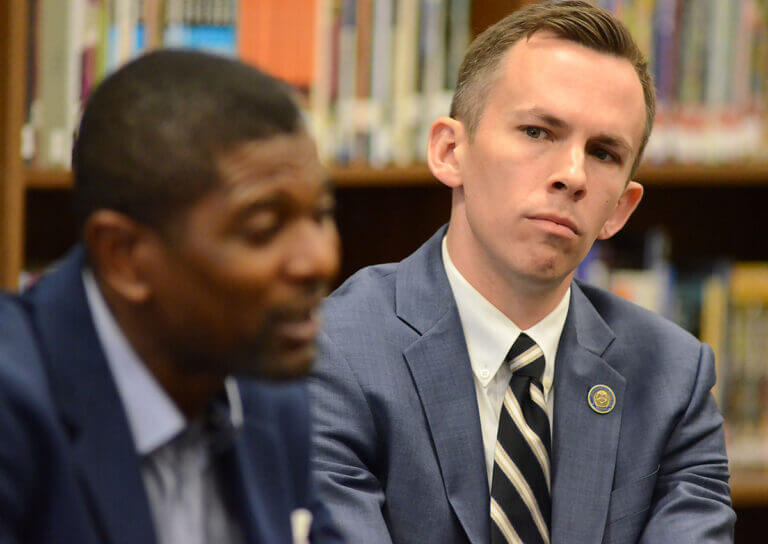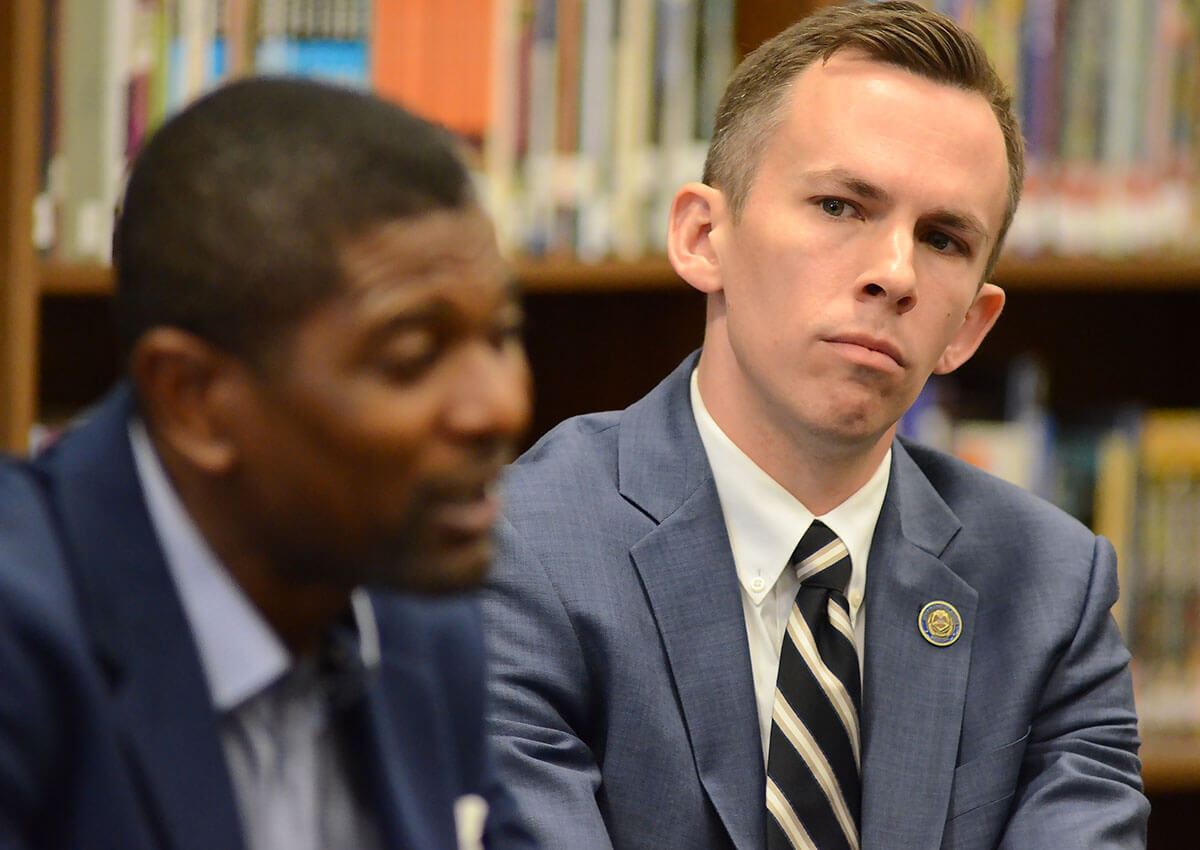

Three nonprofits received over $850,000 in federal grants for HIV prevention between 2021 and 2024 but administered only 35 HIV tests during that period, State Auditor Shad White alleges in a report released Monday.
The report identified reimbursements for alcohol, late-night rideshares, purchases from a smoke shop, the rental of a nightclub owned by one group’s executive director and a declined payment for gift cards. All of the payments were approved by the Mississippi Department of Health, the agency responsible for overseeing distribution of the funding to community-based organizations.
“The lapses identified are unacceptable and not reflective of our agency’s standards or mission,” the health department said in a press release Monday.
The agency could not produce monthly reports for grant activities or documentation of hundreds of thousands of dollars of expenses, the report said. Nor could it provide all of the funding agreements or say whether the organizations were aware they were required to report testing data, a spokesperson for the auditor’s office told Mississippi Today.
The grant funding was meant to help states establish and maintain HIV prevention and surveillance programs, and HIV testing was an element of each organization’s agreement. The grants also paid the nonprofits to educate the public about HIV and hire community health workers.
Mississippi has the sixth highest rate of new HIV diagnoses in the country, and the majority of the state’s prevention efforts are funded with federal dollars.
“It’s almost like our government hates us,” said Auditor Shad White in a press release. “This kind of spending defies all common sense and is an insult to hardworking taxpayers.”
Lorena Quiroz, the executive director of Immigrant Alliance for Justice and Equity, said the nonprofit submitted all required monthly reports and expense documentation to the health department.
Love Inside for Everyone and Love Me Unlimited 4 Life, the other two organizations investigated by the state auditor, did not respond to questions from Mississippi Today.
None of the organizations referenced in the audit report still have grants or contracts with the health department, and the agency has already taken steps to hire new leadership in its STD/HIV division and tighten management of grants, it said in a press release.
The audit probes a period when the health department’s STD/HIV division was severely understaffed after public health priorities shifted to the COVID-19 pandemic and skyrocketing syphilis cases in the state. Around the same time, the health department began receiving tens of millions of dollars in additional federal funding for HIV prevention efforts as a part of an initiative launched by President Donald Trump during his first term in office to end the domestic HIV epidemic.
But the funding increases have resulted in only a slight dent in new HIV cases. New diagnoses dropped 5% in the first three years of reported data since the state began receiving the additional federal dollars, according to Centers for Disease Control and Prevention data published by AIDSVu – far from keeping up with the federal government’s ambitious goals of reducing new diagnoses 75% by 2025 and 90% by 2030.
Increasing HIV testing in community settings is one of the plan’s core strategies.
Immigrant Alliance for Justice and Equity, a Jackson nonprofit that advocates for immigrant and indigenous communities in Mississippi, was contracted to take steps to become a rapid HIV testing site, but did not conduct any tests because the health department did not provide a phlebotomist, Quiroz told Mississippi Today in an email.
It is unclear why the organization would have required a phlebotomist, as rapid tests are administered with a finger prick or saliva. Immigrant Alliance for Justice and Equity did not respond to a follow-up question for clarification.
Quiroz said HIV testing materials worth $11,412 were lost in a storm that destroyed the organization’s building and roof. The storm occurred in June 2023, one month before the nonprofit’s agreement with the health department ended and 10 months after the supplies were purchased.
Health department records showed that Love Inside for Everyone, a LGBT+ advocacy nonprofit, performed 35 HIV tests between 2021 and 2024.
Love Unlimited 4 Life, a transgender advocacy organization no longer in operation, recieved grant funding between 2021 and 2023 for the salaries of two community health workers. Health department records showed that no HIV tests were administered by the organization.
The nonprofits’ grant agreements also included education and testing events. The auditor’s report called several events “questionable,” including a Latinx pride month and HIV awareness event hosted by Immigrant Alliance for Justice and Equity that exceeded its proposed budget and included alcohol purchases in a request for reimbursement.
Love Inside for Everyone used grant funding to rent Metro 2.0, a nightclub owned by the organization’s executive director, Temica Morton, a possible conflict of interest.
Due to the health department’s lack of grant monitoring, it could not say if HIV testing or awareness activities occurred at the events, the auditor’s office said.
Several federal grants Mississippi relies on for HIV prevention efforts have been cut or destabilized since the Trump administration took office earlier this year. Public health experts have argued these cuts will undermine HIV testing activities.
White said the audit shows that the Trump administration’s cuts to HIV prevention efforts have been unfairly criticized in a video on Fox News Digital.
“Our audit shows that when you dig into how this money is actually being spent, it’s not actually helping people with HIV/AIDs, it’s not helping to test people for HIV, it’s instead being wasted,” White said.
The health department reiterated the importance of community partners to advancing public health goals in a statement.
“It is important to underscore that these findings do not reflect the value of many nonprofit partners we continue to work with across Mississippi. Partnerships remain critical to our public health mission.”
- Mississippi Marketplace: data center ups and downs, alcohol shortages and new manufacturing projects - February 19, 2026
- More Mississippi students are graduating despite pandemic-era disruptions, new data shows - February 19, 2026
- Education advocates says Mississippi needs honest, nuanced school choice discussion - February 19, 2026